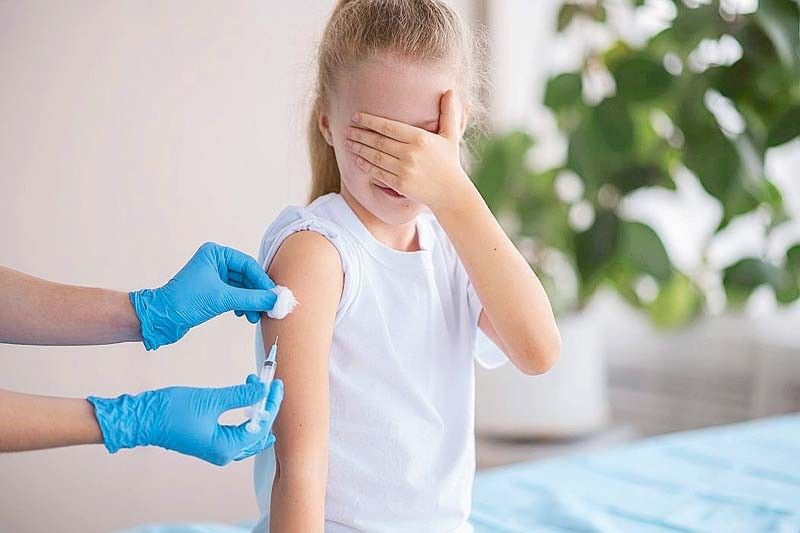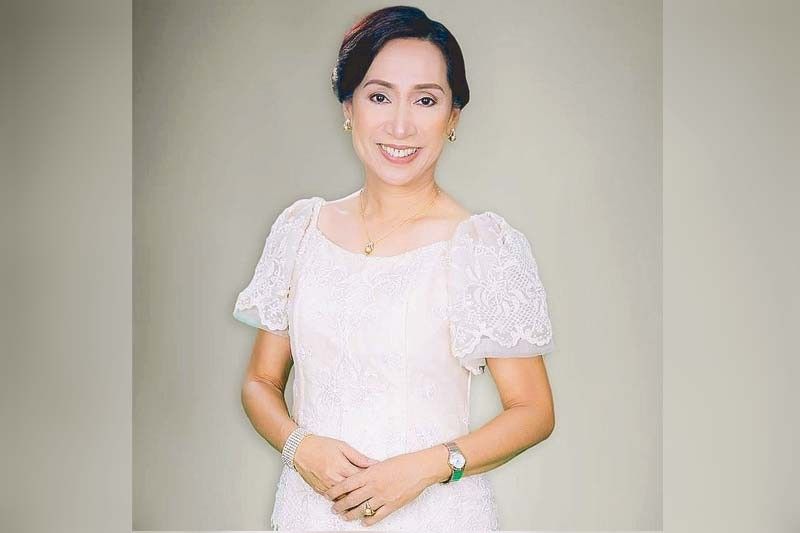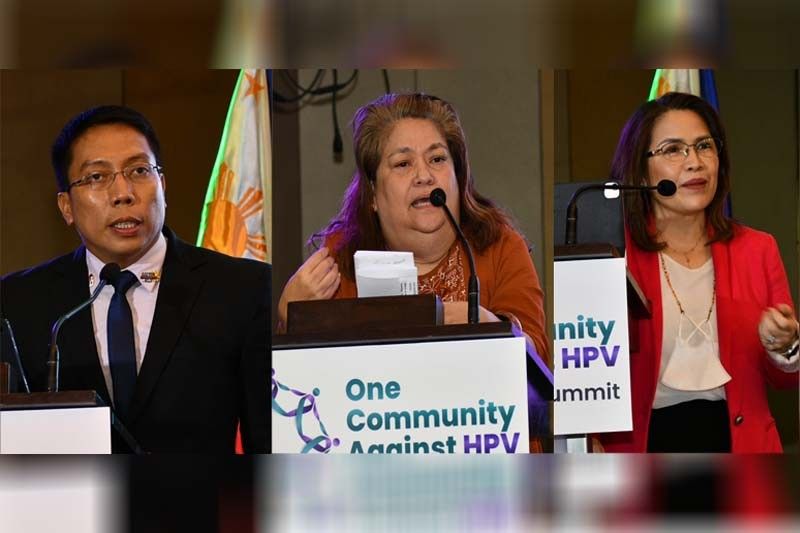What you really need to know about HPV


Increasing awareness of the human papillomavirus (HPV) vaccine and addressing misconceptions about it among parents is essential to improving vaccine uptake.
These were the sentiments of health experts, members of the academe, and other health advocates at the 12th HPV Summit held recently at the Monet Ballroom, Novotel Manila, Araneta Center, Cubao, Quezon City.
HPV, a sexually transmitted infection, is the leading cause of most cervical cancer. This deadly disease remains a burden, especially in low-resource countries like the Philippines where facilities for prevention, screening, diagnosis and treatment are lacking.
With the theme, “One Community Against HPV,” the event underscored the need to scale up HPV immunization as a preventive measure to eliminate cervical cancer.
Records show that half a million cases are diagnosed every year and nearly 50 percent occur in Asia. More than half of those diagnosed every year will die in the same year because, most of the time, they are diagnosed very late.
Widespread vaccination with the HPV vaccine could help reduce the number of people who develop cervical cancer and other HPV-related cancers around the world.
The World Health Organization (WHO), which envisions a world where cervical cancer is eliminated as a public health problem, initiated studies (in August 2020) that determined the incidences in 185 countries. And the target is to achieve an incidence rate of below four per 100,000 women in Asia and Latin America.
“And so, we are working to increase the coverage of HPV vaccination in the country,” said Dr. Jan Llevado, chief of Cancer Control Division, Department of Health. “For calendar year 2023, DOH has acquired one million doses of HPV vaccine, which will cover an estimated 500,000 females aged nine to 17 or approximately 38 percent of the nationwide school-aged children target.”
According to Carmen Auste, founding member of the Eliminate Cervical Cancer Movement, the number of girls between nine and 14 is growing yearly.
“The government needs to increase its budget for HPV vaccination since this significantly lowers our daughters’ risk of having cervical cancer in the future,” she said.
This was seconded by Dr. LLevado. “We are appealing to Congress for an additional budget for our proposal for 2024. We were initially given a budget for 750,000 doses. Still, we’re appealing for additional budget to cover at least one age cohort.”
The Department of Education (DepEd) also expressed its support for the movement to address cervical cancer. “As we returned to face-to-face classes post-pandemic, we are in an even more opportune position to make this more pronounced and build on our efforts, both in terms of our comprehensive sexuality education program and our adolescent reproductive health program through our teen centers. We seek to work with all of you to make cancer control and school health more deeply embedded in the lives of our young learners,” said Dr. Dexter Galban, DepEd assistant secretary for operations.
Local government units also expressed their commitment in implementing the global strategy against cervical cancer.
“Local government units like us have a vital role in the endeavor. The City Government of Tarlac is strengthening partnerships with the national government, NGOs, the private sector and other organizations to amplify our impact. We have allocated resources, enacted policies and legislations, and launched public awareness campaigns that reflect our commitment to a future where HPV is no longer a threat,” shared Tarlac City Mayor Cristina Angeles in a recorded message.
“We have invested in adolescent HPV vaccination and cervical cancer awareness campaigns for female learners 9-13 years old. Under this program, we kicked off the school-based and community-based vaccination of HPV in partnership with the DOH, DepEd and healthcare company partner MSD in the Philippines,” shared Hon. Arthjun Marasigan - Mayor, Sto. Tomas, Batangas.
HPV vaccination drive

The Philippines first rolled out its HPV immunization drive in 2013 as a demonstration project. In 2015, the DOH expanded the program to cover 20 priority provinces with high poverty rates and incidence of HPV. In the following years, the program was rolled out to more local government units.
“For those who have access or can afford the vaccine there are parental and patient concerns and misconceptions that affect acceptability and vaccine hesitancy,” said Dr. Erlinda Cuisia-Cruz, Adolescent Medicine Division head, Philippine Children’s Medical Center.
Dr. Cruz was one of the speakers during the 12th HPV Summit, themed “One Community Against HPV,” jointly organized by the Pharmaceutical Healthcare Association of the Philippines and MSD in the Philippines in partnership with the DOH, AC Health, Philippine Obstetrical and Gynecological Society, the Society of Adolescent Medicine of the Philippines, and the Cancer Warriors Foundation.
“As pedia and adolescent specialists, we have direct access to patients and their parents. We can provide education and information about the benefits of HPV vaccination, its role in the prevention of cancer and other related diseases. We can also address concerns and clarify misconceptions to help them make informed decisions,” added Dr. Cuisia-Cruz.
Misconceptions

Despite its prevalence, there are many misconceptions about who gets HPV, how they get it, and what a diagnosis means.
“Some people associate HPV vaccination with sexual activity rather than cervical cancer prevention,” shared Dr. Auste. “HPV does not only affect those who are already sexually active.”
Dr. Cuisia-Cruz concurred, adding the need to address concerns about HPV vaccination “as a license to sexual initiation and promiscuity.”
“When we give the vaccine we are not saying yes, they can have sex. The message is, it is for the prevention of cervical cancer,” she pointed out.
Dr. Jeanne Tiangha Gonzales, Assistant Secretary of the National Board Association of Municipal Health Officers of the Philippines, said they can help intensify HPV education and awareness.
“When we distribute consent forms, sometimes they decline because they are not aware about HPV so we have to intensify our campaign,” said Dr. Gonzales.
She said they will be more persistent in reaching out to mothers or parents through health summits and other activities for both parents and teens so they can learn more about HPV and cervical cancer together.
“The child can convince the parent to allow her for vaccination,” said Dr. Gonzales.
In this crucial moment, a strong appeal is being made for individuals, groups and communities to unite in the collective fight against HPV. Collaborative efforts from various stakeholders are essential to enhance awareness, encourage vaccination, and champion equal access to healthcare services. Together, they can significantly influence the health and welfare of our communities.
To join the fight, people are urged to sign the 11,000-strong Loud SolidariTeal petition at https://www.change.org/p/it-is-time-to-take-action-against-cervical-cancer.



















